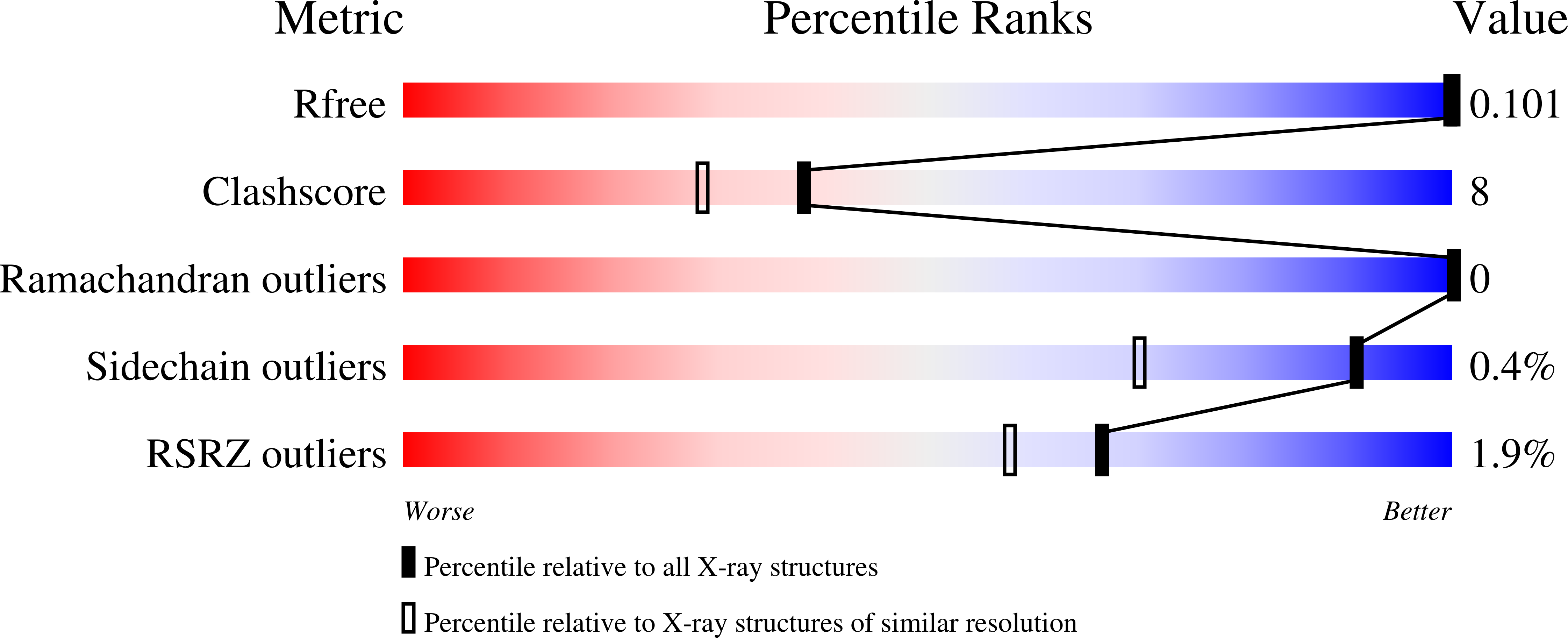X-ray-radiation-induced cooperative atomic movements in protein.
Petrova, T., Lunin, V.Y., Ginell, S., Hazemann, I., Lazarski, K., Mitschler, A., Podjarny, A., Joachimiak, A.(2009) J Mol Biol 387: 1092-1105
- PubMed: 19233199
- DOI: https://doi.org/10.1016/j.jmb.2009.02.030
- Primary Citation of Related Structures:
3GHR, 3GHS, 3GHT, 3GHU - PubMed Abstract:
X-rays interact with biological matter and cause damage. Proteins and other macromolecules are damaged primarily by ionizing X-ray photons and secondarily by reactive radiolytic chemical species. In particular, protein molecules are damaged during X-ray diffraction experiments with protein crystals, which is, in many cases, a serious hindrance to structure solution. The local X-ray-induced structural changes of the protein molecule have been studied using a number of model systems. However, it is still not well understood whether these local chemical changes lead to global structural changes in protein and what the mechanism is. We present experimental evidence at atomic resolution indicating the movement of large parts of the protein globule together with bound water molecules in the early stages of radiation damage to the protein crystal. The data were obtained from a crystal cryocooled to approximately 100 K and diffracting to 1 A. The movement of the protein structural elements occurs simultaneously with the decarboxylation of several glutamate and aspartate residues that mediate contacts between moving protein structural elements and with the rearrangement of the water network. The analysis of the anisotropy of atomic displacement parameters reveals that the observed atomic movements occur at different rates in different unit cells of the crystal. Thus, the examination of the cooperative atomic movement enables us to better understand how radiation-induced local chemical and structural changes of the protein molecule eventually lead to disorder in protein crystals.
Organizational Affiliation:
Structural Biology Center, Biosciences Division, Argonne National Laboratory, Argonne, IL 60439, USA.

















